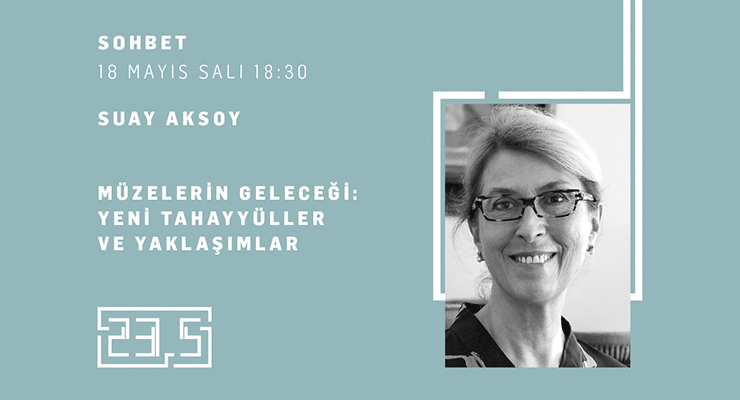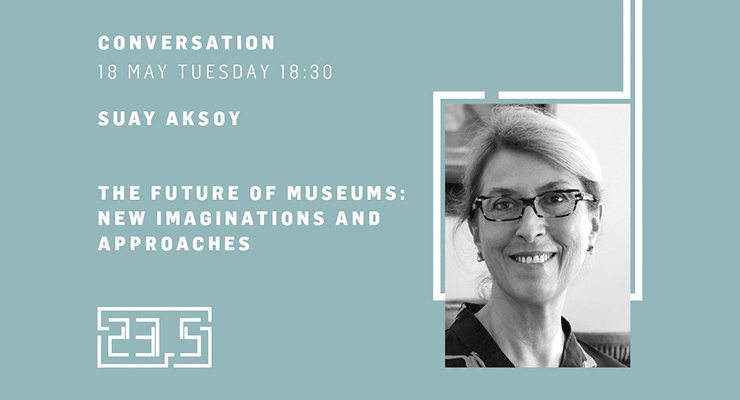The International Council of Museums (ICOM) has set this year's theme as "The future of museums: Recover and reimagine". ICOM has been working to update the current definition of museums and the code of ethics for museums for some time. While working on a new definition, the Council invites us to think about the museums of the future and to imagine the transformations museums will experience.
Covid-19 pandemic negatively affected the field of culture and arts. Many museums could not welcome their visitors due to the pandemic. However, despite all these restrictions, the digital age and technological possibilities offers new possibilities for museums to continue their mission.
In the 23.5 conversation series, with the participation of Suay Aksoy, former president of the International Council of Museums and Afşin Altaylı, an independent museum professional, we discussed the future of museums, how the definition of museum will be reshaped, museums' contribution to peace building, democracy and social dialogue; as well as the transformation of the museums with the digitalization and new technologies.
In the panel, Suay Aksoy stated that museums have begun to monitor and intervene in the development and problems in society, such as climate problems, health, equality, social cohesion, digitization and the use of technology, which allows her to be hopeful regarding the future of museums. She defined this process as updating the rationale for museums for their existence and to maintain their sustainability. She said that this update will continue inside the museums as well as outside the museums, and will lead to more democratization for both the employees and the relationship of the museum with the visitors.
Though a consensus could not be reached for the definition of museums despite ICOM’s efforts for years, she stated that the power dynamics within ICOM is the underlying reason. She pointed out that despite the museum understanding varies from country to country and even according to geography, the existing museum definition with the desire to preserve the institutionalism established in Europe there is not a demand to change the already existing definition. Stating that one of the missing concepts in the proposed definition is education, she underlined the difference between "education" and "learning". She said that museums will have an important place as a learning resource in the coming period and that they can give much more than formal education. She said that the second objection regarding the existing definition is that it defined museums as permanent spaces. She emphasized that the digitalization that became dominant with the pandemic and the widespread use of the internet transformed museums into online spaces rather than permanent, fixed institutions.
Afşin Altaylı stated that while envisioning the future of museums, it is important to listen to the different expectations and comments of the society associated with the museums, the components that make up the society, museum professionals and also other actors about museums. He said that the future of museums depends on how we transform these interpretations and expectations, how we instrumentalize them, and what values we reorganize around. Emphasizing that he is hopeful for the future of museums, he also stated that we have great difficulties ahead of us as a sector. He also expressed that it is possible to overcome these difficulties by questioning, talking freely and sharing them.
He also stated that the process of determining the new definition of museums as ICOM was held democratically in which even the museums that are not ICOM members have participated. He said that in the current definition, the article about museums being "in the service of our society" should be opened more and reinterpreted around certain better-defined values. He added that the reason for not accepting the definition was related to the taking of museums participation to a new scale. He said that these articles, which include accountability, democracy, transparency and sharing of authority, can be frightening to many museums, especially in Europe. Emphasizing that it may not be possible to define a museum best for everyone, he said that the real determinant is how best to translate the definition of museum into today's reality.


